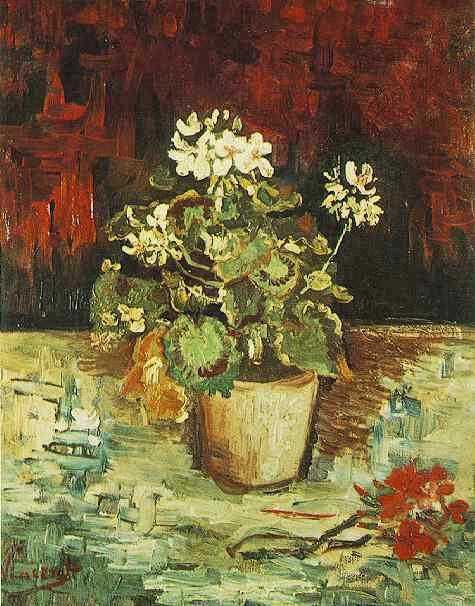Description
The painting "Geranium in a Pot" by Vincent Van Gogh is a masterpiece that represents the beauty of nature in its simplest form. This artwork is a perfect example of the Post-Impressionism artistic style, which is characterized by the use of bright colors and the representation of reality in a subjective way.
The composition of the painting is very interesting, as Van Gogh has used a unique perspective to show the geranium in its pot. The geranium is in the center of the painting, surrounded by a dark green background that contrasts with the bright red of the flowers. The pot itself is an interesting object, as Van Gogh has used bold, thick brush strokes to create a texture that appears almost three-dimensional.
Color is one of the highlights of this painting. Van Gogh has used a bright and vibrant color palette to create a sense of vitality and energy in the work. The intense red of the flowers contrasts with the dark green of the background, creating an impressive visual effect.
The story behind this painting is also very interesting. Van Gogh painted this work in 1886, while living in Paris. During this time, he was experimenting with different artistic styles and techniques, and this painting is a perfect example of his ability to create stunning works of art.
There are many little-known aspects of this painting that make it even more fascinating. For example, Van Gogh is believed to have used a technique called "impasto" to create the texture of the pot. This technique involves applying the paint in thick, bold layers, creating a texture that appears almost three-dimensional.

